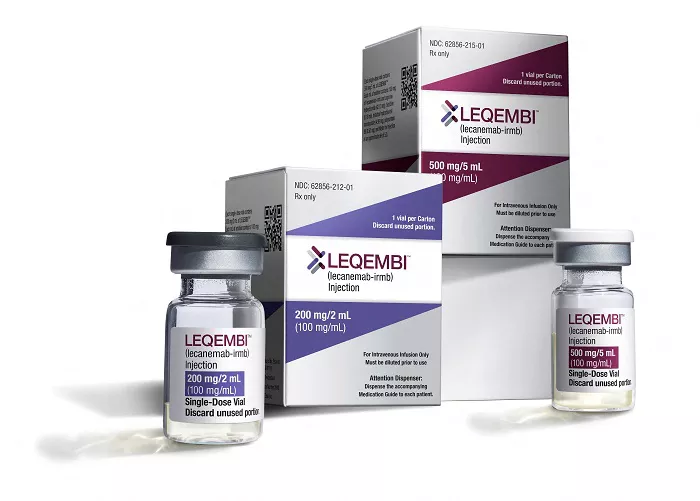The C-reactive protein (CRP) test is a valuable tool used in medical diagnostics to measure the levels of C-reactive protein in the blood. CRP is a protein produced by the liver in response to inflammation in the body. Elevated CRP levels can indicate the presence of an acute or chronic inflammatory condition, making it an essential biomarker for various diseases. In this article, we will delve into the significance of the CRP test and its role in clinical diagnosis.
Understanding C-Reactive Protein (CRP)
CRP is a plasma protein that plays a crucial role in the body’s immune response. It is produced in response to the presence of cytokines, which are chemical messengers released during inflammation. CRP binds to damaged cells, bacteria, and other foreign substances, marking them for destruction by immune cells. In healthy individuals, CRP levels are low. However, when inflammation occurs, the liver rapidly produces more CRP, leading to an increase in blood CRP levels.
The CRP Test Procedure
The CRP test is a simple blood test performed in a clinical setting. A small blood sample is drawn from the patient’s arm and sent to a laboratory for analysis. The test measures the amount of CRP present in the blood, typically reported in milligrams per liter (mg/L). The results are usually available within a few hours or days, depending on the laboratory’s protocols.
Clinical Significance of the CRP Test
1. Detecting Inflammatory Conditions
The CRP test is commonly used to identify and monitor acute and chronic inflammatory conditions, such as infections, autoimmune disorders, and cardiovascular diseases. Elevated CRP levels are associated with conditions like rheumatoid arthritis, lupus, vasculitis, and inflammatory bowel disease.
2. Monitoring Disease Activity
The CRP test is valuable for assessing disease activity and response to treatment in various chronic inflammatory disorders. By measuring CRP levels over time, healthcare professionals can gauge the effectiveness of therapies and make informed decisions regarding treatment adjustments.
3. Assessing Cardiovascular Risk
Elevated CRP levels have been linked to an increased risk of cardiovascular diseases, including coronary artery disease, heart attack, and stroke. Measuring CRP alongside other cardiovascular risk factors, such as cholesterol levels, helps identify individuals at higher risk and enables proactive intervention to prevent adverse cardiac events.
4. Predicting Prognosis
In certain conditions, such as sepsis or critical illnesses, high CRP levels can indicate a poorer prognosis. Monitoring CRP trends over time allows healthcare providers to assess the severity of the disease and predict outcomes, assisting in making informed decisions about patient care.
Interpreting CRP Test Results
CRP test results are typically reported in mg/L. The interpretation of CRP levels varies depending on the clinical context. In general, CRP levels below 3 mg/L are considered normal, while levels between 3-10 mg/L suggest mild inflammation. Levels exceeding 10 mg/L indicate significant inflammation or infection.
It is crucial to note that CRP is a non-specific marker of inflammation, meaning that elevated levels can indicate inflammation, but not the specific cause. Further diagnostic tests may be necessary to identify the underlying condition causing the elevated CRP levels.
Factors Affecting CRP Levels
Several factors can affect C-reactive protein (CRP) levels in the body. Understanding these factors is important for interpreting CRP test results accurately and considering the context in which elevated or decreased CRP levels may occur. Here are some factors that can influence CRP levels:
1. Inflammation and Infection
CRP levels rise significantly in response to inflammation and infection. Bacterial, viral, or fungal infections can trigger an immune response, leading to increased CRP production. Inflammatory conditions, such as tissue damage, autoimmune diseases (e.g., rheumatoid arthritis, lupus), and chronic inflammation (e.g., inflammatory bowel disease), can also contribute to elevated CRP levels.
2. Medications
Certain medications can affect CRP levels. Nonsteroidal anti-inflammatory drugs (NSAIDs) and corticosteroids, commonly used to treat inflammatory conditions, can suppress CRP production, resulting in lower CRP levels. On the other hand, statins, cholesterol-lowering medications, have been found to reduce CRP levels, potentially due to their anti-inflammatory effects.
3. Lifestyle Factors
Lifestyle choices can influence CRP levels. Obesity has been strongly associated with elevated CRP levels, as adipose tissue produces inflammatory cytokines. Smoking, a known risk factor for cardiovascular disease, can also increase CRP levels. Regular physical activity has been shown to lower CRP levels, potentially due to its anti-inflammatory effects.
4. Age and Gender
CRP levels tend to increase with age, especially in women. Postmenopausal women often exhibit higher CRP levels than premenopausal women, suggesting hormonal influences on CRP production. However, the clinical significance of these age and gender differences in CRP levels is still under investigation.
5. Genetic Factors
Genetic variations can contribute to differences in CRP levels among individuals. Some genetic polymorphisms have been associated with higher baseline CRP levels, indicating a genetic predisposition to inflammation.
6. Chronic Conditions
Certain chronic conditions, such as cardiovascular disease, diabetes, and metabolic syndrome, can lead to chronically elevated CRP levels. These conditions involve ongoing low-grade inflammation, which can sustain increased CRP production.
It’s important to note that while CRP is a valuable marker of inflammation, it is not specific to any particular disease or condition. Therefore, elevated CRP levels should be interpreted in conjunction with other clinical findings and diagnostic tests to determine the underlying cause. Furthermore, individual variations in CRP levels can exist, and trends over time may be more significant than absolute values when assessing disease activity or treatment response.
“Can the CRP Test Be Used as a Screening Tool for Certain Diseases?”
The CRP test is not typically used as a standalone screening tool for specific diseases. While elevated CRP levels can indicate inflammation, it is a nonspecific marker that does not provide a definitive diagnosis or identify the underlying cause of inflammation. Therefore, using the CRP test alone for screening purposes may lead to false positives or inconclusive results.
However, CRP testing can be a valuable component of comprehensive health assessments and risk stratification in certain contexts. For example, in cardiovascular disease risk assessment, measuring CRP levels alongside other established risk factors (such as cholesterol levels) may help identify individuals at higher risk of developing heart disease. Similarly, in monitoring chronic inflammatory conditions, the CRP test can aid in assessing disease activity and treatment response over time.
Ultimately, the decision to use the CRP test as part of a screening program or diagnostic workup should be made by healthcare professionals based on individual patient characteristics, clinical symptoms, and relevant guidelines. Integrating CRP testing within a broader diagnostic framework can enhance its utility and ensure more accurate interpretations of the results.
Conclusion
The C-reactive protein (CRP) test is a valuable tool in clinical diagnostics, providing valuable information about inflammatory conditions, disease activity, cardiovascular risk, and prognosis. By measuring CRP levels, healthcare professionals can make informed decisions regarding treatment plans and monitor patients’ progress over time. However, it is important to remember that CRP is a non-specific marker, and further diagnostic tests may be necessary to determine the underlying cause of elevated CRP levels. As research continues to advance, the CRP test’s utility in diagnosing and managing various diseases is likely to evolve, further enhancing its role in patient care.
[inline_related_posts title=”Related Topics” title_align=”left” style=”list” number=”3″ align=”none” ids=”738,735,691″ by=”categories” orderby=”rand” order=”DESC” hide_thumb=”no” thumb_right=”no” views=”no” date=”yes” grid_columns=”1″ post_type=”” tax=””]

































